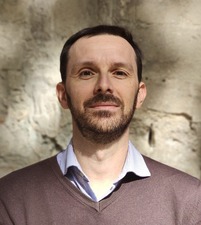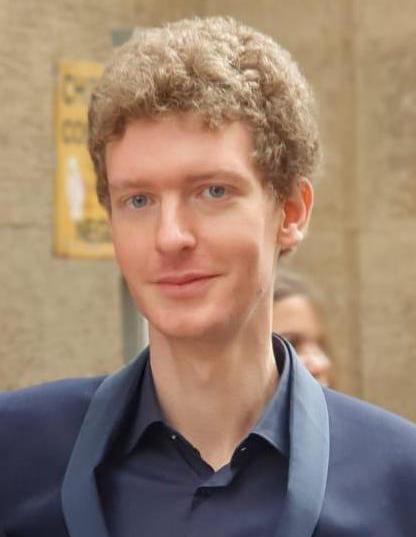Studying at the University of Verona
Here you can find information on the organisational aspects of the Programme, lecture timetables, learning activities and useful contact details for your time at the University, from enrolment to graduation.
Academic calendar
The academic calendar shows the deadlines and scheduled events that are relevant to students, teaching and technical-administrative staff of the University. Public holidays and University closures are also indicated. The academic year normally begins on 1 October each year and ends on 30 September of the following year.
Course calendar
The Academic Calendar sets out the degree programme lecture and exam timetables, as well as the relevant university closure dates..
| Period | From | To |
|---|---|---|
| Sem. 1A | Sep 24, 2018 | Nov 10, 2018 |
| Sem. 1B | Nov 19, 2018 | Jan 12, 2019 |
| Sem. 2A | Feb 18, 2019 | Mar 30, 2019 |
| Sem. 2B | Apr 8, 2019 | Jun 1, 2019 |
| Session | From | To |
|---|---|---|
| Sessione Invernale | Jan 14, 2019 | Feb 16, 2019 |
| Sessione Estiva (Gli esami sono sospesi durante la Sessione di laurea) | Jun 3, 2019 | Jul 27, 2019 |
| Sessione Autunnale | Aug 26, 2019 | Sep 21, 2019 |
| Session | From | To |
|---|---|---|
| Sessione Estiva | Jul 8, 2019 | Jul 13, 2019 |
| Sessione Autunnale | Nov 4, 2019 | Nov 9, 2019 |
| Sessione Invernale | Mar 30, 2020 | Apr 4, 2020 |
| Period | From | To |
|---|---|---|
| Festa di Ognissanti | Nov 1, 2018 | Nov 1, 2018 |
| Festa dell’Immacolata | Dec 8, 2018 | Dec 8, 2018 |
| Vacanze di Natale | Dec 22, 2018 | Jan 6, 2019 |
| Vacanze di Pasqua | Apr 19, 2019 | Apr 23, 2019 |
| Festa della liberazione | Apr 25, 2019 | Apr 25, 2019 |
| Festa del lavoro | May 1, 2019 | May 1, 2019 |
| Festa del Santo Patrono - S. Zeno | May 21, 2019 | May 21, 2019 |
| Festa della Repubblica | Jun 2, 2019 | Jun 2, 2019 |
| Vacanze Estive | Aug 12, 2019 | Aug 17, 2019 |
Exam calendar
Exam dates and rounds are managed by the relevant Humanistic Studies Teaching and Student Services Unit.
To view all the exam sessions available, please use the Exam dashboard on ESSE3.
If you forgot your login details or have problems logging in, please contact the relevant IT HelpDesk, or check the login details recovery web page.
Should you have any doubts or questions, please check the Enrollment FAQs
Academic staff
 evita.calabrese@univr.it
evita.calabrese@univr.it
 sofia.piacentin@univr.it
sofia.piacentin@univr.it
 pieralberto.porcedducilione@univr.it; pierre_pordd@yahoo.it
pieralberto.porcedducilione@univr.it; pierre_pordd@yahoo.it
 045 8028732
045 8028732
Study Plan
The Study Plan includes all modules, teaching and learning activities that each student will need to undertake during their time at the University.
Please select your Study Plan based on your enrollment year.
1° Year
| Modules | Credits | TAF | SSD |
|---|
Other activities2° Year activated in the A.Y. 2019/2020
| Modules | Credits | TAF | SSD |
|---|
1 module to be chosen among the following1 module to be chosen among the following3 modules to be chosen among the following3° Year activated in the A.Y. 2020/2021
| Modules | Credits | TAF | SSD |
|---|
3 modules to be chosen among the following1 module to be chosen among the following| Modules | Credits | TAF | SSD |
|---|
Other activities| Modules | Credits | TAF | SSD |
|---|
1 module to be chosen among the following1 module to be chosen among the following3 modules to be chosen among the following| Modules | Credits | TAF | SSD |
|---|
3 modules to be chosen among the following1 module to be chosen among the following| Modules | Credits | TAF | SSD |
|---|
2 modules to be chosen among the following3 modules to be chosen among the followingLegend | Type of training activity (TTA)
TAF (Type of Educational Activity) All courses and activities are classified into different types of educational activities, indicated by a letter.
General psychology (2019/2020)
Teaching code
4S007528
Teacher
Coordinator
Credits
6
Also offered in courses:
- General psychology (p) Coordinator: Torquati Stefania of the course Bachelor's degree in Philosophy
Language
Italian
Scientific Disciplinary Sector (SSD)
M-PSI/01 - GENERAL PSYCHOLOGY
Period
Sem. 1B dal Nov 11, 2019 al Jan 11, 2020.
Learning outcomes
The course aims to promote:
1) knowledge and understanding of the psychological theories that explain the attitudes and behaviors of the individual and groups;
2) the ability to know and apply theories related to the functioning of the individual, groups and organizations to the reading and analysis of learning phenomena and personal and social change;
3) autonomy of judgment concerning the study of observed behavior and internal cognitive processes;
4) the appropriate communication skills in the institutional, public, social and corporate fields of psychological concepts.
Specific objectives:
The course will provide an overview of the basic concepts that characterize Psychology as Experimental Discipline. The topics that will be covered will be: sensory and perceptual processes, learning and memory, motivation, language learning, development theories, social psychology and personality. Through a brief recapitulation of the salient moments of the history of Psychology, some main theories will be analyzed such as Behaviorism, Gestalt Theory and Cognitivism.
Program
1) Scientific psychology: origin and development
- Birth of current psychology
- Currents of Psychology
- Physiological psychology
- Introspectionism
- The Psychology of form
- Dynamic psychology
- Behaviorism
- Scientific assumptions of Psychology
2) Perception and its "laws"
- Perception and sensation
- The sensory bases
- Sensory mechanisms
- The Gestalt laws of perception
- Visual illusions
3) Higher mental functions
- Intelligence
- The thought
- The language
4) Memory and learning
- Memory processes
- Method of studying memory
- Associations
- Constructivism
- Cognitivism and information processing
- Development of the mind
- Learning
- Responsive conditioning
- Operative conditioning
- Cognitive conceptual learning
5) Emotion and motivation
- Drive theory
- Freudian theory of drives
- Ethological theory
- Activation theory
- Secondary cognitive reasons
- Emotions
- The mechanisms of emotion
- Development of emotions
6) States of conscience
- The nature of consciousness
- Brain and consciousness
- Attention and activation
- Daily biological rhythms
- Sleep and dream
- Hypnosis and induced alterations of consciousness
7) Development phases
- What is meant by development
- Development up to 2 years: early childhood
- From 2 to 6 years: second childhood
- Childhood
- Adolescence
- Adulthood and old age
8) Personality and individual
- The theories of traits
- Medical-biological theories
- The psychoanalytic theory
- Behavioral theories and personality
| Author | Title | Publishing house | Year | ISBN | Notes |
|---|---|---|---|---|---|
| Canestrari, R., Godino, A. | Manuale di Psicologia (Edizione 3) | CLUED | 2018 | 978-88-491-5579-2 |
Examination Methods
In the "moodle section" relative to the course, from lesson to lesson, it will be possible to find the slides of the course to integrate the exam text.
NB: Following the health emergency due to Covid-19, the usual examination procedures are changed for the 2020 summer session, in accordance with the indications of the University. Specifically: "the exam will be held orally using Zoom".
The exam taken during an official call will consist of a 30 minutes multiple choice question (30) (3 answers alternatives, only one of which is correct.) For the final judgment expressed in thirtieths, a correct answer has value equal to 1 point, an incorrect answer has a value equal to 0 points, an answer not given has a value equal to 0 points).
Type D and Type F activities
Modules not yet included
Career prospects
Module/Programme news
News for students
There you will find information, resources and services useful during your time at the University (Student’s exam record, your study plan on ESSE3, Distance Learning courses, university email account, office forms, administrative procedures, etc.). You can log into MyUnivr with your GIA login details: only in this way will you be able to receive notification of all the notices from your teachers and your secretariat via email and soon also via the Univr app.
Student mentoring
Linguistic training CLA
Gestione carriere
Practical information for students
Documents
| Title | Info File |
|---|---|
|
|
pdf, it, 325 KB, 02/05/23 |
|
|
pdf, it, 212 KB, 02/05/23 |
|
|
pdf, it, 131 KB, 02/05/23 |
Graduation
Documents
| Title | Info File |
|---|---|
|
|
pdf, it, 99 KB, 13/10/23 |
|
|
pdf, it, 101 KB, 10/04/24 |

































